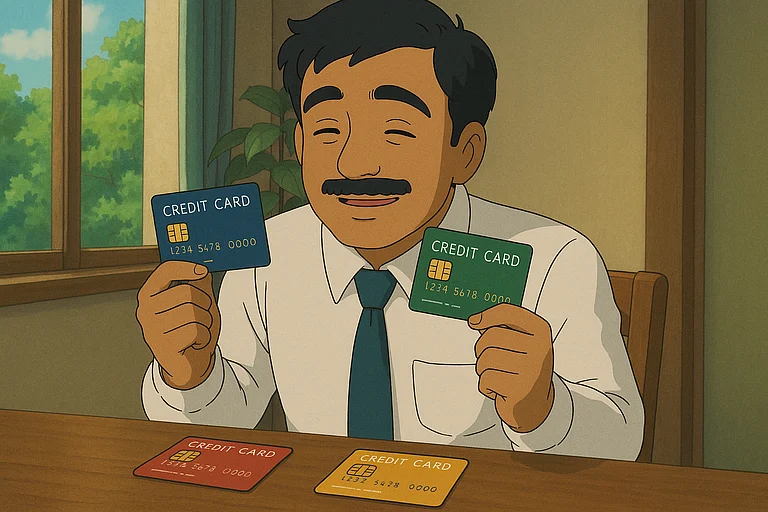
Summary of this article
Unpaid balances remove interest-free period for all future purchases
Paying only minimum due still incurs interest on new spending
Full monthly repayment keeps grace period and avoids extra charges
Most credit cards in India typically come with an interest-free period of 30-60 days. This is the interval between the date of purchase and the payment date, during which the credit card issuer doesn't charge any interest if the bill is paid in full.
The credit card issuer typically includes the days in the billing cycle between the statement date and the due date. In simple words, it is the interval during which credit card users get to borrow free for more than a month.
What Happens When You Carry a Balance
Trouble starts when the card user does not settle the outstanding amount in full on or before the due date. Even if only a minimal amount is carried forward, the next cycle's interest-free period is lost. In other words, all new purchases begin accruing interest from the transaction date.
For instance, if a person incurs an unpaid balance of Rs 1,000 in one cycle and spends Rs 5,000 in the next, the bank will charge interest on the Rs 5,000 from the date it is spent. This is because the unpaid balance is a revolving balance, and the new purchases are added to this. The grace period only renews when the complete balance is paid off.
How Much It Can Cost
Interest charges on credit cards in India are generally between 36 per cent and 45 per cent annually or 3-3.75 per cent a month. On a Rs 5,000 purchase, a rate of interest of 3 per cent per month would translate to an interest charge of Rs 150 for a single month. If the balance is not repaid, the interest accrues, and products purchased weeks prior can end up being much more expensive than what they were initially. Besides, Goods and Services Tax (GST) also applied to the interest and charges, which adds to the overall expenses.
Why Paying the Minimum Due Is Not Enough
Most consumers think that paying the minimum due amount will help them safeguard their zero-cost borrowing period. In fact, paying the minimum due only curbs late payment fees, but does not in any way prevent interest from being charged. Once the grace period is over, it costs a lot to use the card, and the advantage of zero-cost borrowing vanishes.
How to Keep Your Grace Period
The most useful aspect of a credit card, particularly for responsible spenders, is the grace period. It provides a leeway to buy and pay back without incurring extra charges. Losing it not only adds to the cost of borrowing, but can also upset monthly budgets, since interest would accumulate almost instantly after spending.
The easiest way to maintain this advantage is to pay the entire outstanding balance each month. This involves monitoring the billing cycle, scheduling big expenditures at the beginning of the cycle to take advantage of the interest-free period, and resisting the urge to treat the minimum payment as a reasonable payment plan. Even a minor lapse can eliminate the grace period and impose additional charges on subsequent purchases.











